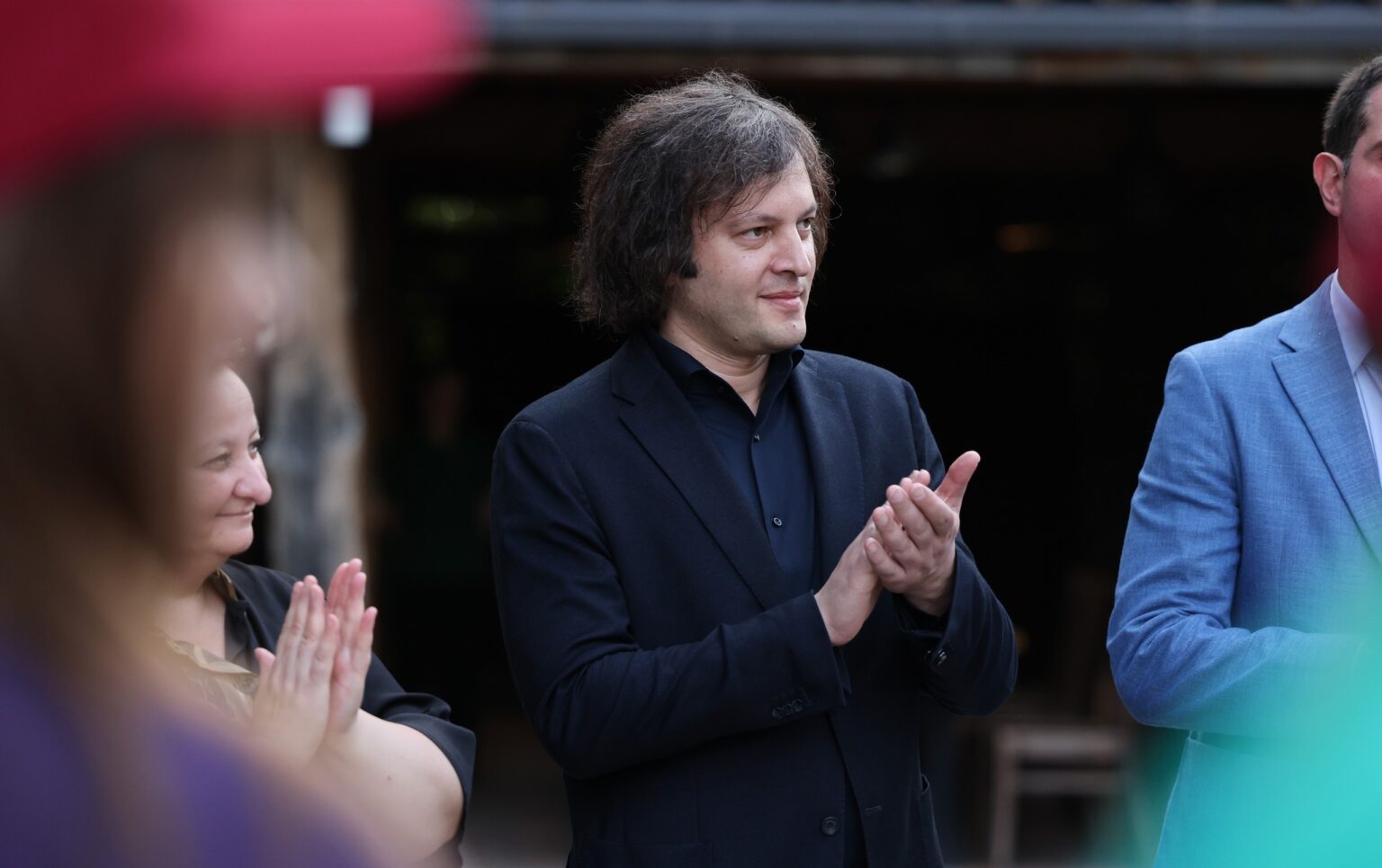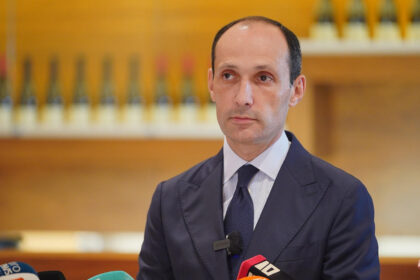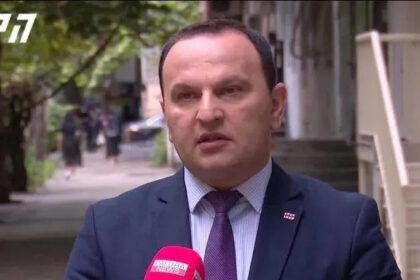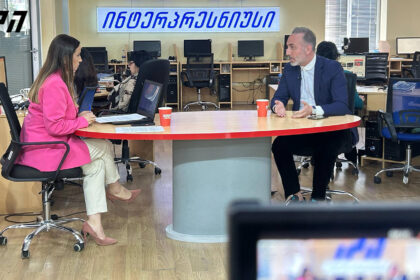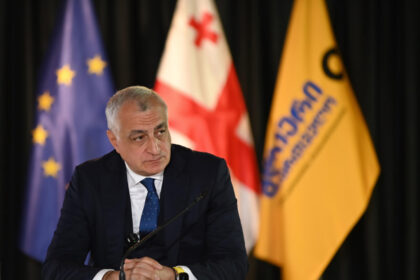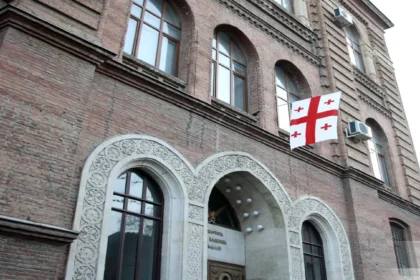**Georgian Prime Minister Denies “Pro-Russian” Allegations, Cites Tulsi Gabbard’s Claims**
In a recent statement, Georgian Dream Prime Minister Irakli Kobakhidze responded to allegations that the ruling party and its founder, Bidzina Ivanishvili, are “pro-Russian.” Instead of denying these claims outright, Kobakhidze seized on the opportunity to criticize what he called the “deep state” for using propaganda tactics against his government.
The prime minister’s remarks came in response to a statement made by Tulsi Gabbard, Director of U.S. National Intelligence. Gabbard had alleged that there was a “conspiracy” by the Barack Obama administration to subvert Donald Trump’s victory in 2016, including claims about Russian interference in the U.S. elections.
Kobakhidze argued that labeling opponents as “pro-Russian” is a common tactic used by the “deep state” in various countries. He cited examples of politicians from France, Romania, and Hungary who have faced similar allegations. According to Kobakhidze, Georgian Dream and Ivanishvili have been subjected to the same kind of propaganda.
**The Prime Minister’s Response**
Kobakhidze claimed that his government has been unfairly accused of being pro-Russian because it does not take orders from foreign powers, has removed agents from all branches of government, defends sovereignty, and has not allowed LGBT propaganda. He added that no evidence has ever been presented to support these claims.
The prime minister also compared the alleged “pro-Russian” accusations against his government to Nazi Germany’s propaganda methods, saying that such tactics create an enemy icon and then accuse opponents of ties to it. Kobakhidze praised Gabbard for exposing the deep state and thanked her for helping to inform the public about its methods.
**The Broader Implications**
Kobakhidze’s statement highlights a broader debate about the role of propaganda in politics. The prime minister’s comments suggest that his government sees itself as a target of false accusations, similar to those made against politicians from other countries.
By invoking Tulsi Gabbard’s claims and comparing them to alleged anti-government propaganda in Georgia, Kobakhidze is drawing attention to what he believes are unfair tactics used by the “deep state.” This statement may be seen as an attempt to deflect criticism of his government’s own actions and policies.
However, some observers might interpret this move as a desperate attempt to shift public opinion away from legitimate concerns about Georgian Dream’s record on issues like media freedom, judicial independence, and human rights.
**A Continuing Debate**
The debate over the “deep state” and propaganda tactics in politics is unlikely to end anytime soon. As politicians continue to exchange accusations and counter-accusations, it remains to be seen how this discourse will shape public opinion and influence policy decisions in Georgia and beyond.
Read More @ civil.ge




